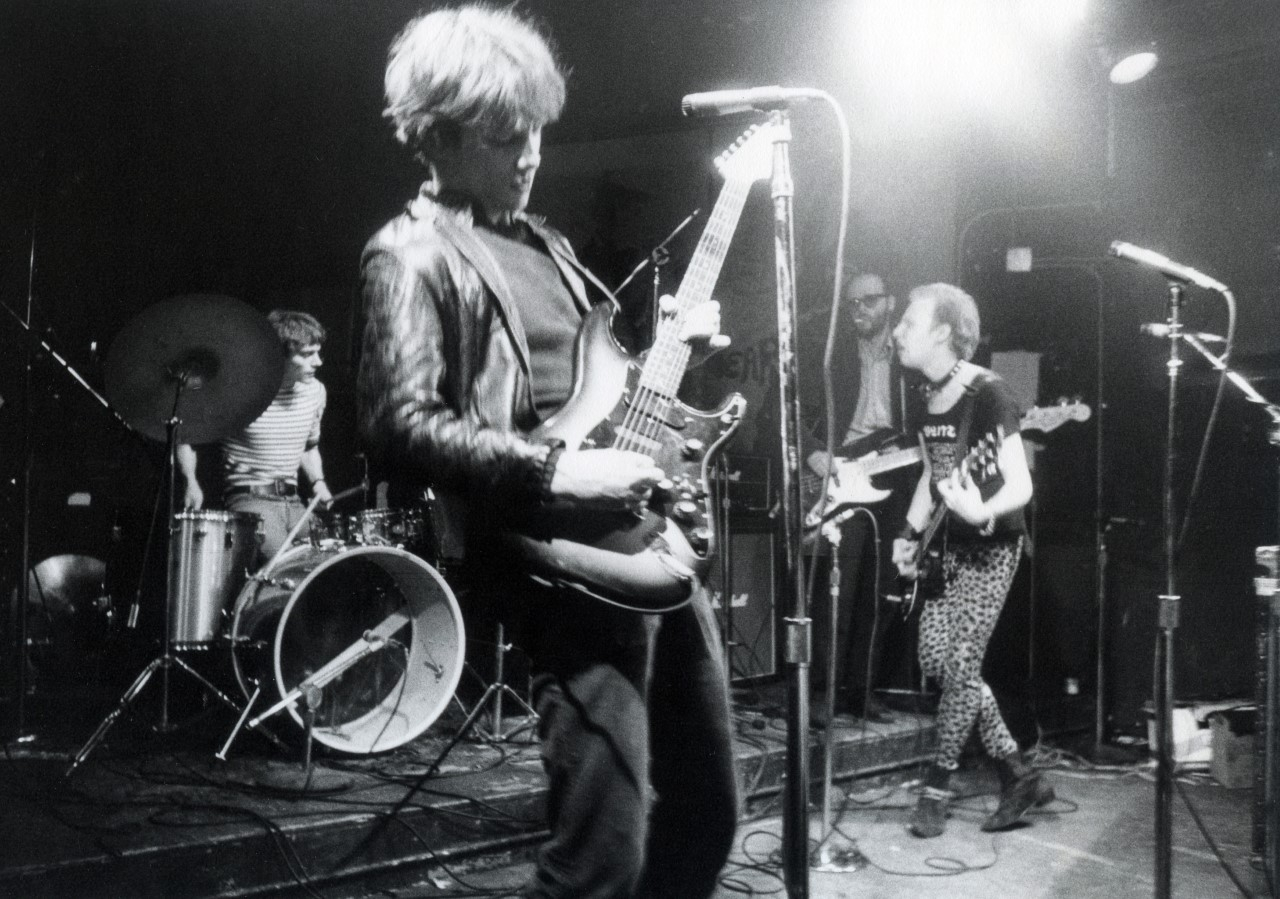
 Richard Lloyd is not Richard Hell. Richard Hell was born Richard Lester Meyers, and he was the other guitarist in Television; Lloyd’s the one who stuck it out. He was familiar with Led Zeppelin, Jimi Hendrix, John Lee Hooker, and more of the icons of late ’60s rock ‘n’ roll guitar god suchness. Now that that’s out of the way, on to his memoirs.
Richard Lloyd is not Richard Hell. Richard Hell was born Richard Lester Meyers, and he was the other guitarist in Television; Lloyd’s the one who stuck it out. He was familiar with Led Zeppelin, Jimi Hendrix, John Lee Hooker, and more of the icons of late ’60s rock ‘n’ roll guitar god suchness. Now that that’s out of the way, on to his memoirs.
How do you review a book like Everything Is Combustible: Television, CBGB’s and Five Decades of Rock and Roll? It’s linear (at times), sure, and definitely works in the memoir style, wherein Lloyd relates tales of growing up, going to school, and how he came up in the music scene, but it’s also rampant with digressions, asides, and musings on cosmic concepts.
Everything Is Combustible is all over the place, but more specifically, it runs the gamut from dry to detailed, charming to caddish, and everything in between. It’s certainly a wonderful read, as you’ll get highly-detailed remembrances of being called up on stage to play with John Lee Hooker (“I started my solo and my legs were shaking. There should’ve been cymbals between my knees because they were knocking so hard.”), meeting Hilly Krystal as he was installing the sign at CBGB’s, going to Woodstock, and any number of astonishing events. It’s like a punk-rock Forrest Gump, but with a heroin addiction.
Unfortunately, Lloyd’s tone gets a little wearisome after a time. He’s very self-assured, which comes across as cocky at best and conceited at worst. His book is best consumed in small chunks. Personally, it’s an entertaining bedside tome that I most enjoyed here and there, rather than when tackled as a lengthy narrative. You’ll definitely want to set it aside after a chapter such as “Girls and Other Girls,” which is just six pages of detailing sexual encounters, which concludes with the blithe statement, “Anyway, that’s some of the many girls I’ve known — and just some more of the peculiar things that have happened to me during my wacky life on this lunatic asylum planet.”
Given the book’s tendency to skip around in time — although mostly linear — there’s really no need to approach in one fell swoop. Pairing it with something a little less out-there tempers Lloyd’s sense of himself. His tales of recording landmark albums like Marquee Moon are detailed and fascinating, though, which is what makes the book so interesting. One minute, it’s standard rock star autobio stuff, the next you’re reading about how he came up with the double-tracking on “Venus” and “Elevation.”
 Everything Is Combustible is out now in paperback, and the copy I received for review was not only autographed, it came in a sleeve which included a copy of Lloyd’s latest album on Plowboy Records, Countdown (also autographed), and a download card. The album’s pretty tight. Lloyd’s definitely leaning into those Jimi Hendrix influences, and while his voice is a little rough, the guitar work is pretty magnificent.
Everything Is Combustible is out now in paperback, and the copy I received for review was not only autographed, it came in a sleeve which included a copy of Lloyd’s latest album on Plowboy Records, Countdown (also autographed), and a download card. The album’s pretty tight. Lloyd’s definitely leaning into those Jimi Hendrix influences, and while his voice is a little rough, the guitar work is pretty magnificent.
I’m not usually one for “guitar god” stuff, but hearing someone play some very nice, but not overly filigreed licks is pretty impressive. Countdown‘s a groove-worthy kind of album, best suited to get you ready on a quiet Friday night before you go hit up an intimate club for some high-toned blues. The pairing of the new album and a refection on the past makes for an intriguing package that is, if not always satisfying, definitely interesting.
Check out excerpts from Everything Is Combustible: Television, CBGB’s and Five Decades of Rock and Roll at the official website.




